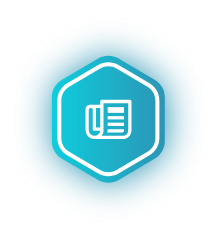Finding the right candidates for sustainable engineering
Author: IntaPeople | Date published: 02/03/21


We’re all aware of the need for more sustainable initiatives in all areas of work and life. The UK Parliament outlined their own targets to increase sustainability within many areas of society for 2020/21:
- To reduce absolute carbon emissions by 34% by 2020/21
- To reduce water consumption by 50% by 2020/21
- To reduce the weight of waste generated by 30% by 2020/21
- To recycle 75% of waste generated by weight by 2020/21
Engineering is a multi-faceted industry and specialism and a great place to incorporate greater sustainability measures. Investing in sustainable engineering knowledge is a great way for engineering employers to think long-term about how they are impacting the environment and pave the way for the future of engineering in all its forms.
In recognition of World Engineering Day for Sustainable Development, 4th March, we’re looking at how to find candidates with suitable soft and technical skills that would support sustainable engineering projects, incentives and initiatives.
What is sustainable engineering?
Sustainable engineering is an evolution of environmental engineering and seeks to find effective solutions to protect our planet’s finite resources whilst also meeting the needs of our growing population and changing cultural emphasis.
Sustainable engineering is gaining prominence in many universities’ engineering courses as a holistic alternative to traditional principles of engineering, and as such is beginning to play an important role in many corporate and government-funded engineering strategies.
Why is sustainable engineering important?
There are no two ways about the impact of humanity on the environment. CO2 emissions are being addressed by many nations’ governments, but industries like engineering and manufacturing continue to have a huge effect on the environment. Climate change, carbon emissions, waste management, finite water and fuel resources all need to be managed to ensure that there is a future for these industries, the human race, and the planet itself.
Sustainable engineering gives organisations the opportunity to create lasting products and projects that will not disrupt the delicate balance between technological, social, ecological, and economic priorities and systems.
How to recruit engineers with relevant skills and competencies for sustainable engineering
Finding candidates with sustainable engineering skills, competencies and experience can be challenging, particularly in today’s skills shortage recruitment climate. While many junior engineering candidates will have learned about and enjoyed sustainability engineering topics at university, there are fewer senior specialists with the right experience available to lead and deliver sustainable projects.
If you’re looking to include more sustainable engineering initiatives or practices into your engineering projects, product design, software development, etc., there are many core competencies to outline as desirable in your job adverts:
- Life cycle thinking
- Material flow analysis
- Input-output analysis
- Industrial ecology
- Sustainable systems engineering
- Risk management
- Eco-design
- Sustainable consumption and production
- Environmental footprint
One way to ensure you’re delivering elements of sustainable engineering into your organisation’s projects and products is to contact a specialist recruiter like IntaPeople. We have the means and the knowledge to translate your unique requirements for sustainability into a tangible strategy that will ensure you are attracting the right candidates, from junior to senior specialists.
Our insight and experience in the engineering market means we know how to identify the right soft and technical skills you need for your team for both today and the future; translating your business model into a sustainable recruitment strategy. From there, we will help you maximise your recruitment channels to attract ideal, skilled and diverse candidates, supporting you with screening and CV shortlists. To ensure you’re drawing out the right evaluative information from your top candidates to assess their cultural fit as well as their hard and soft skills, we provide useful support and guidance during the interview process.
Find out how we can help you create a recruitment strategy to meet your needs today and in the future!
